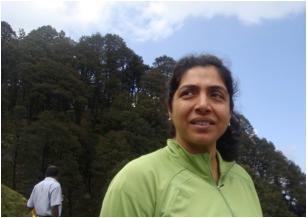 Dr. Roxanne P. Hakim (World Bank, Washington D.C.) ‘The resettlement experiences of a Vasava Bhil community affected by the Sardar Saroval (Narmada) Dam Project in western India’ (1995)
Dr. Roxanne P. Hakim (World Bank, Washington D.C.) ‘The resettlement experiences of a Vasava Bhil community affected by the Sardar Saroval (Narmada) Dam Project in western India’ (1995)
The Sardar Sarovar Dam on the Narmada river in India has a reservoir that covers three states of India (Maharashtra, Gujarat and Madhya Pradesh). The reservoir submerged 247 villages whose inhabitants were eventually resettled. Tribal groups, some of who had very limited exposure to the outside world, inhabited the hill villages closer to the dam site. My PhD research involved long term participant observation in a Bhil Vasava village in Gujarat before the dam was completed, documenting their economy, culture, religion, social interaction and impacts of the increasing politicization of the dam. The village was resettled soon after the completion of my PhD. The RAI fellowship offered me the opportunity to spend another 18 months with the tribe in their new resettlement site. The site was in the plains, attached to a typical Hindu caste village. My research documented the changes in economy, consumption patterns, material and non-material culture, religion and changing social interactions within the community. The overarching theme of both my PhD and Fellowship research was to understand Bhil Vasava identity and how the perceptions of identity (from the view of the self and other) changed with resettlement and changes in economy, culture and social relations.
Publications:
2003. “Changing Patterns of Aspects of Religion and Ritual in a Vasava Bhil Community Impacted by Involuntary Resettlement”’ The Eastern Anthropologist, Lucknow (India): Ethnographic and Folk Culture Society (forthcoming).
2000. “Agricultural Land: The Case of Hill Vasavas Displaced by the Sardar Sarovar (Narmada) Dam, India”, The Eastern Anthropologist, Volume 53, Numbers 1-2, Pp. 73-94 (Special Resettlement Number), January-June 2000, Lucknow (India): Ethnographic and Folk Culture Society.
2000. “Identity, Resettlement and Perceptions of Change: The Vasava Bhils of Gujarat, India”. Goldsmiths Anthropology Research Papers 2000, No 3., Goldsmiths College. University of London.
2000. “From Corn to Cotton: Changing Indicators of Food Security Amongst Resettled Vasavas”, in Cernea M. and McDowell C. (ed.), Risks and Reconstruction: Experiences of Resettlers and Refugees, The World Bank.
1997. “Resettlement and Rehabilitation in the Context of Vasava Culture: Some Reflections”, in Dreze J., Samson M., and Singh S., (ed.), The Dam and the Nation: Displacement and Resettlement in the Narmada Valley, New Delhi: Oxford University Press.
1996. “Vasava Identity in Transition: Some Theoretical Issues”, Economic and Political Weekly of India, Vol.XXX1, No.24, Pp 1492-1499, (Special Issue on Resettlement), July 15, Mumbai: Sameeksha Trust.
1994. “Vasava Society in Transition: Some Issues Regarding the Resettlement Experience of a Village Scheduled for Submergence Under the Sardar Sarovar (Narmada) Dam Projects”, in Shah G. et al.(ed.), Proceedings of the seminar on Resettlement and National Policy in India, Surat (India): Centre of Social Studies.
